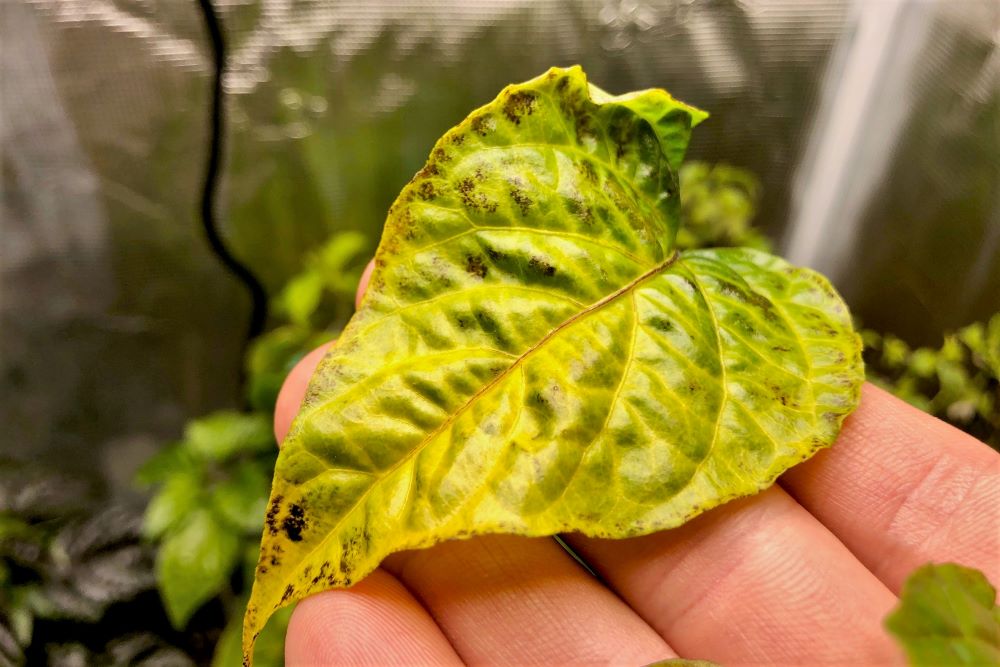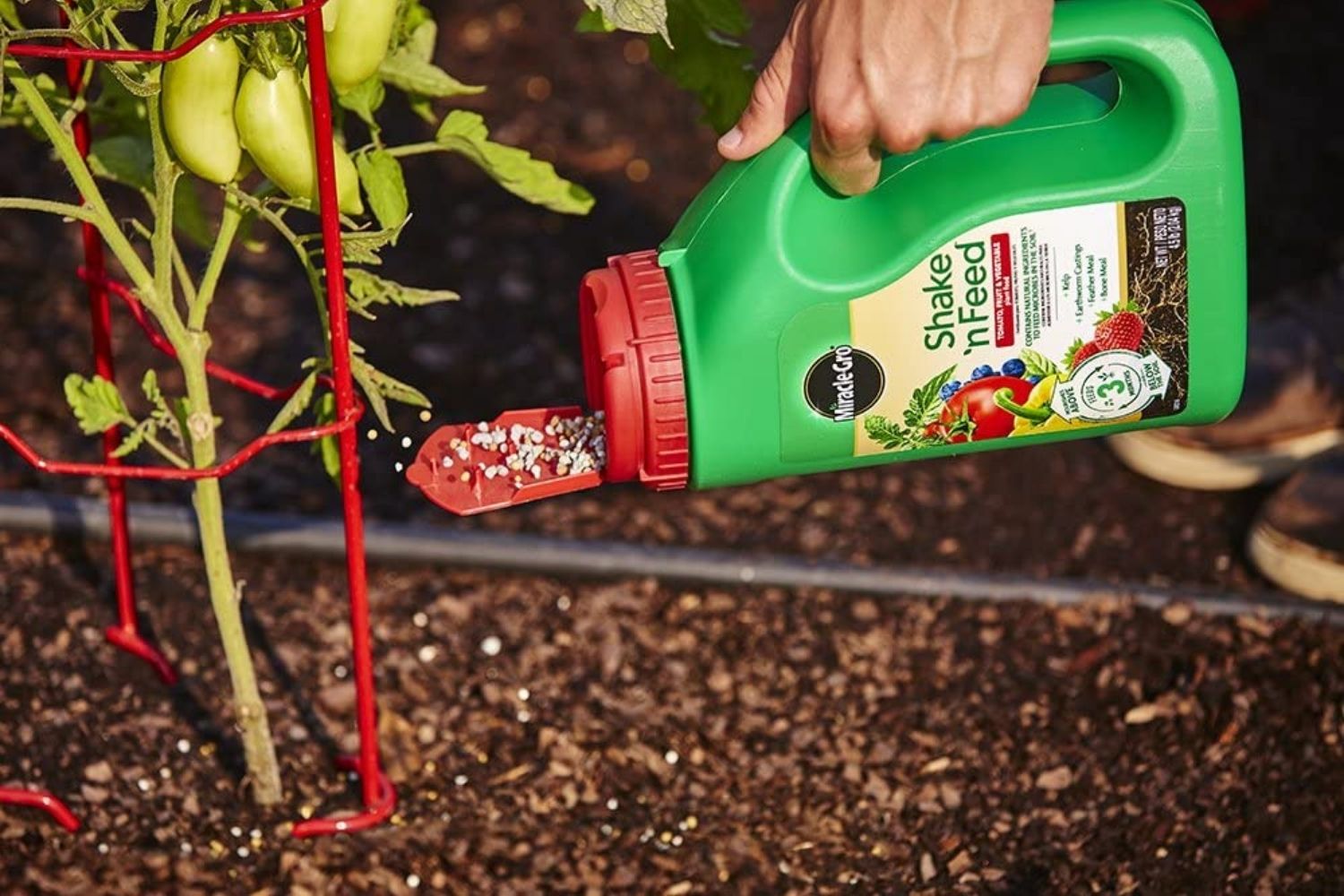Best Fertilizers for Peppers: Make Best Use Of Plant Health and Yield
Best Fertilizers for Peppers: Make Best Use Of Plant Health and Yield
Blog Article
The Ultimate Overview to Feeding Peppers: Enhancing Development and Flavor Normally
As pepper fanatics look for to grow robust plants producing flavorful fruits, the role of fertilizing comes to be vital in achieving these goals. By exploring the benefits of natural fertilizers, unlocking the tricks behind pepper plant nutrient needs, and diving into the realm of natural fertilizer options, a globe of opportunities arises for improving the vitality and taste profile of these cherished plants.
Benefits of All-natural Fertilizers
All-natural plant foods provide an array of advantages that contribute to the general health and productivity of pepper plants. Unlike synthetic plant foods, natural options provide vital nutrients in a form that is quickly taken in by the plants, promoting robust growth and advancement. Among the crucial advantages of natural plant foods is their capability to enhance soil structure and fertility gradually. By improving the soil with natural issue, such as garden compost or manure, all-natural plant foods improve its water retention ability and nutrient-holding capabilities, developing an extra friendly setting for pepper plants to prosper in.
Moreover, natural plant foods sustain a energetic and varied dirt microbiome, promoting beneficial microbial activity that aids in nutrient recycling and uptake by the plants. This microbial task can assist subdue dangerous virus and illness, reducing the demand for chemical treatments. In addition, all-natural fertilizers advertise long-term dirt health by preserving a balanced community underground, which consequently sustains the general health and strength of pepper plants over ground.
Comprehending Pepper Plant Nutrient Needs
Having developed the benefits of natural plant foods in boosting dirt health and wellness and advertising microbial task, the focus now moves to comprehending the particular nutrient needs necessary for optimal growth and flavor in pepper plants.

Recognizing the certain nutrient needs of pepper plants is crucial for attaining abundant harvests with exceptional flavor. By providing the best balance of nutrients with natural fertilizers or dirt amendments, growers can guarantee healthy, strenuous plants that produce savory peppers throughout the expanding season.
Organic Fertilizer Options for Peppers
In enhancing the growth and taste of pepper plants, choosing the proper organic plant foods is a crucial consideration. Organic plant foods provide a lasting and natural means to nourish pepper plants without introducing damaging chemicals to the soil and atmosphere.
One more effective natural fertilizer for peppers is aged manure. Rich in potassium, nitrogen, and phosphorus, aged manure gives a balanced nutrient mix that supports strenuous growth and bountiful fruit manufacturing (best fertilizers for peppers). It is very important to use well-aged manure to avoid burning the plants with excess ammonia
Fish emulsion is a fast-acting natural plant food that provides pepper plants with a quick boost of nutrients. Originated from fish waste, this fertilizer is high in nitrogen, making it specifically helpful throughout the very early phases of pepper plant growth. Fish solution is very easy to use and is conveniently soaked up by the discover this info here plants, advertising healthy vegetation and strong origin growth.
When picking a natural fertilizer for peppers, consider the details nutrient requirements of your plants and select options that line up with your gardening practices and values.
Best Practices for Fertilizing Pepper Plants
Thinking about the value of choosing appropriate natural plant foods for pepper plants, executing finest techniques for fertilizing is necessary to guarantee optimal growth and taste advancement. It is also important to feed pepper plants at the appropriate time, normally prior to growing and during crucial development stages such as blooming and fruit advancement.
One more crucial method is to stay clear of over-fertilization, here as this can lead to vitamins and mineral imbalances, stunted development, or perhaps plant damages (best fertilizers for peppers). Adhering to suggested dosage guidelines and not exceeding them is vital for the general health of the pepper plants. In addition, including organic matter right into the soil through garden compost or mulching can help enhance soil structure, water retention, and vitamins and mineral schedule, promoting much healthier pepper plants with improved taste accounts. By sticking to these best techniques, you can efficiently nourish your pepper plants and accomplish bountiful harvests with superior preference and quality.
Troubleshooting Common Fertilization Issues

pH inequality is an additional issue that can influence nutrient uptake in pepper plants. When the published here dirt pH is too expensive or too low, particular nutrients come to be unavailable to the plants. Regularly evaluating the dirt pH and making changes using organic amendments can help preserve an appropriate pH degree for optimum plant growth. Inconsistent fertilizing methods can lead to unequal growth and fruit development. Establishing a regular fertilization routine and adhering to advised application prices can aid prevent this issue and guarantee healthy pepper plants throughout the expanding period.
Conclusion
Finally, utilizing all-natural plant foods can significantly improve the growth and taste of pepper plants. By recognizing the nutrient requirements of pepper plants and choosing organic fertilizer options, gardeners can effectively promote vigorous and healthy growth. Following ideal methods for fertilizing pepper plants and repairing usual fertilizing concerns can aid make sure successful farming of peppers. Generally, proper fertilization strategies are important for maximizing the return and quality of pepper plants.
By discovering the benefits of natural plant foods, unlocking the keys behind pepper plant nutrient needs, and diving into the realm of natural fertilizer choices, a world of opportunities arises for enhancing the vigor and taste profile of these precious plants.Fish emulsion is a fast-acting natural fertilizer that provides pepper plants with a quick increase of nutrients. It is additionally crucial to fertilize pepper plants at the best time, normally before growing and throughout key growth phases such as blooming and fruit development.
By recognizing the nutrient demands of pepper plants and choosing organic plant food alternatives, gardeners can successfully advertise energetic and healthy development. Complying with ideal techniques for fertilizing pepper plants and troubleshooting typical fertilizing problems can assist make certain successful farming of peppers.
Report this page